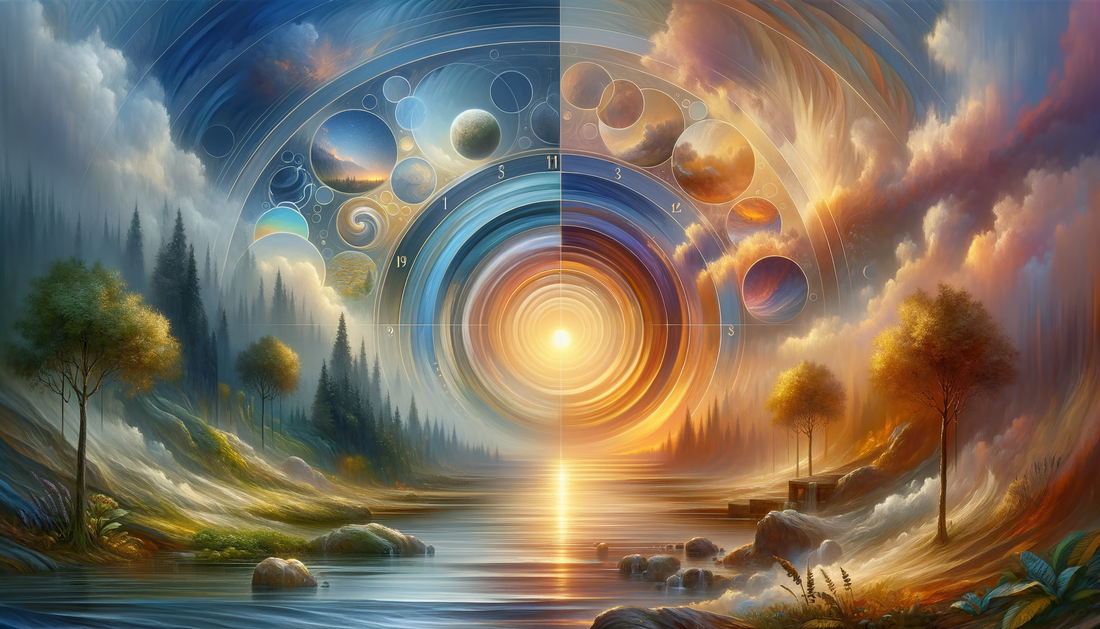Welcome, dear reader, to the marvellous and somewhat mysterious world of your body's internal clock, more formally known as the circadian rhythm, orbited by the curious way it rules the roost of your sleep-wake cycle. It's a topic that at first glance might seem as dry as a solitary crumpet in the desert, but I assure you it's anything but. So, let us embark on a journey through the swirling cosmos of chronological cogs and nocturnal nuances, exploring how this intricate system orchestrates the symphony of your everyday existence. Prepare to have your perceptions of time fathomed and maybe even rewound a tick or two.
Setting the Scene of Circadian Mastery
The term circadian rhythm might sound like something you’d overhear at a science fiction convention sandwiched between discussions of warp speed and light sabres, yet it is very much of this earth. The root of this intriguing melody lies in the Latin ‘circa,’ meaning around, and ‘diem,’ meaning day, a clever little way of referring to a 24-hour cycle. This internal clock orchestrates your body’s myriad functions, such as telling you when it's time to sleep, eat, or consider the life choices that brought you to an excessive caffeine dependency.
But how, you might ask, does it know to do so? Well, the principal conductor of this biological orchestra is the suprachiasmatic nucleus, less of a tongue twister than a neurotic composer nestled in your brain, adjusting the tempo of your body’s operations based on light cues. Yes, dear night owls and daylight enthusiasts, light is the metronome to which your internal symphony marches.
Light Bridges and Sleep Corridors
Let us delve deeper into the world of light, circadian rhythms’ knight in shining armour. Exposure to light, particularly natural daylight, is the most significant external factor affecting your internal clock. When morning light penetrates your drapes and gently nudges you awake, it sets off a chain reaction, signalling your brain to halt melatonin production, the gentle sandman-like hormone encouraging rest, and increase cortisol to rattle your senses into alertness. Light acts as the bridge between unconscious slumber and bustling awakeness, a gentle prod from nature itself suggesting that it's time to face the day, or at the very least, your inbox.
On the flip side, as daylight wanes and dusk slips silently into those evocative hues, your body's nocturnal programming kicks in, whispering sweet melatonin serenades, guiding you to the precipice of sleep until you succumb. However, modern life with its shenanigans, gadgets with screens mimicking daylight frivolously, occasionally leads your internal clock astray, blurring the line between artificial and natural light.
A World in Disarray: Factors Disrupting the Harmony
Now, imagine if you will, a world where this cosmic clockwork is thrown into disarray. Several quirks of modern life can mischievously unhinge your circadian rhythm, turning your sleep-wake cycle into something of an avant-garde jazz number, unpredictable and somewhat unsettling.
Jet lag, shift work, late-night Netflix binges, and late-night coffee all come into play like unruly guests at a tea party, entertaining yet ultimately unsettling for the host (that would be you). At a more magnified level, stress, poor diet, and lack of physical activity also dance in the periphery, quietly orchestrating chaos without your conscious consent.
Ripple effects include insomnia, daytime drowsiness, mood swings, impaired memory, and even long-term health consequences such as obesity and heart disease. The list goes on, ripe for examination, yet universally sobering.
Aligning with Your Natural Rhythms: A Guide
Now, you're probably wondering if there's a way to put your internal clock back on the straight and narrow! Fret not, for it's neither a particularly hefty task nor requiring a degree in time manipulation. It starts with a commitment to consistency, adopting a regular sleep schedule even on weekends, the kind that's reliable and reassuring like a quintessentially British cuppa.
Bask in the morning light whenever possible, and embrace an evening ritual that soothes and signals your internal clock it's time to wind down. Cortisol is not always your friend, like that amusing yet tiresome colleague who doesn’t know when to take a hint, while melatonin is the gentle confidant with whom you’ll enjoy a peaceful evening cuppa.
Furthermore, take heed and mind what you feed your body, both nutritionally and emotionally. Consume less caffeine, steer clear of heavy midnight feasts fit for a viking banquet, and avoid emotionally charged late-night television shows that coax cortisol back into action. Indulge instead in a chapter or two of a good book under the soft glow of a warm lamp.
The Power of the Siesta
And let's not overlook the art of the nap, the siesta if you will, a term affectionately borrowed from our Mediterranean neighbours. A brief reprieve, spanning no more than twenty minutes, gears you up with a boost of alertness without sending you into that undesirable post-nap grogginess, a souvenir none of us desire.
Grounded Tips from a Trusty Chronometer Companion
In closing, remember, aligning with your natural circadian rhythm is akin to adjusting the dial of a classic radio to precisely tune in to your favourite station. It's not about dramatic changes but subtle adjustments that synchronize the rhythm of your existence harmoniously with nature's grand design.
Surround yourself in light when it's called for. Retire electronics to silent mode before bed. Savour your mornings, respecting your body's cues like a conductor honouring his score. You'll soon find yourself in sleep's gentle embrace without the complexity of navigating interstellar space. And that’s a promise.
With all this said, consider giving yourself permission to remain delightfully human, even as you march to the beat of your unique internal clock. Because even clocks need a touch of occasional recalibration. Welcome serenity with open arms and make punctual peace with time itself. Who knows, you might even find yourself in a delightful dance with the rest of the cosmos.

